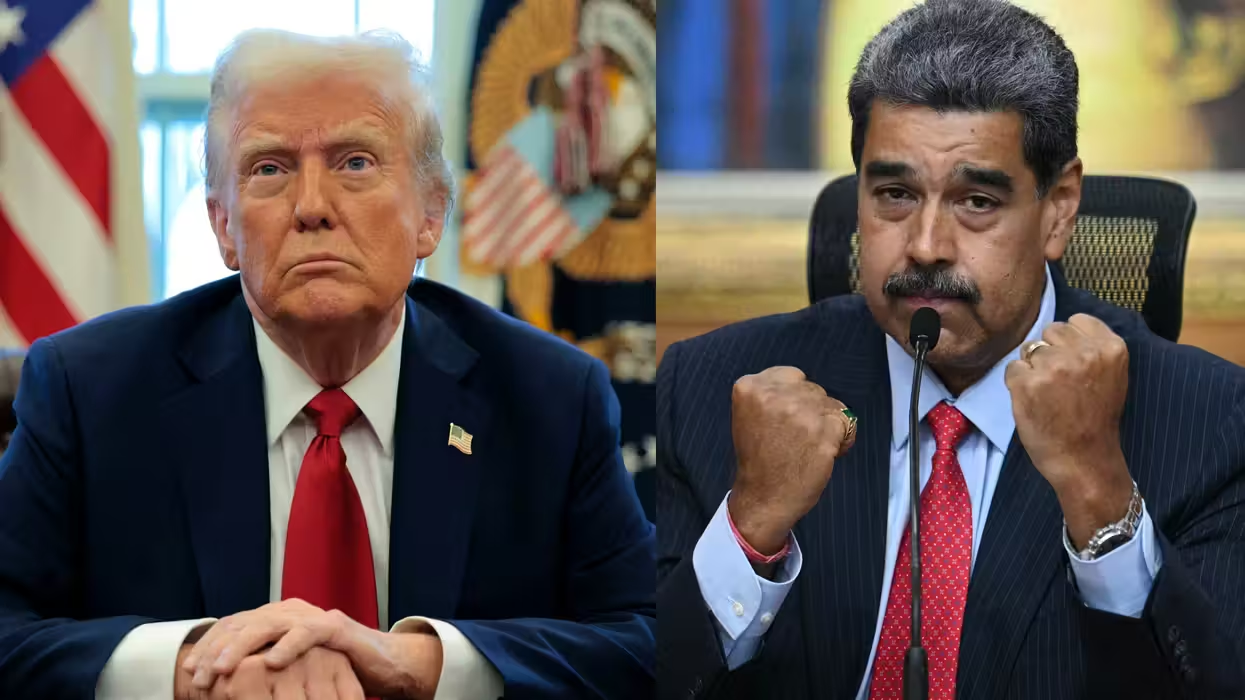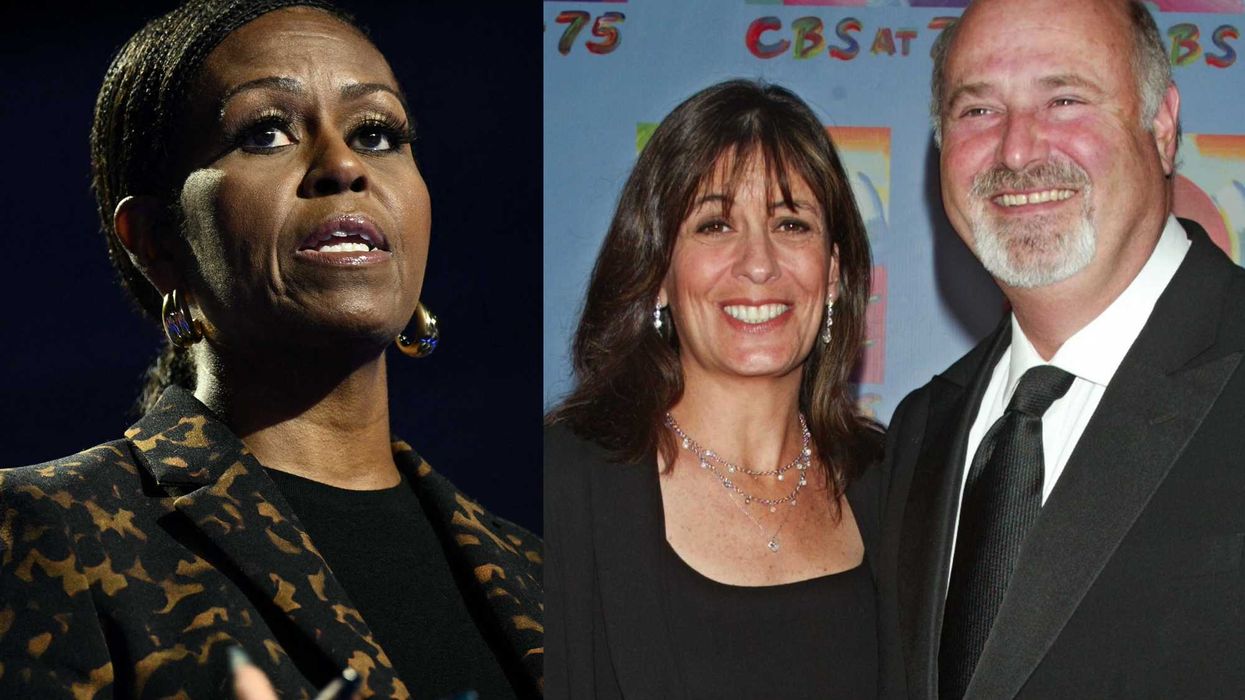
© 2025 Blaze Media LLC. All rights reserved.
Romney's Utah setback proves nominating conventions could fix the Senate
April 23, 2018
There’s only one way to elect a critical mass of conservatives to the House and Senate each cycle without starting a new party. That is by replacing popular primaries with representative conventions, the way nominees were chosen before the progressive changes instituted by Teddy Roosevelt. If we continue down the current path with popular primaries, we will continue to elect the same Republicans – even in solid red states, even as they commit one political betrayal after another. Case in point? Mitt Romney’s stumble at the Utah convention in his bid to win the GOP nomination for Senate.
Something truly remarkable happened over the weekend at the Utah nominating convention. However, for those who understand the power of conventions over primaries, it wasn’t so unusual. The problem is that few states hold conventions, and even the Utah convention has been gutted in recent years by the party establishment.
Running against Mitt Romney in Utah, State Rep. Mike Kennedy is an ant in the path of an elephant. He has a fraction of the name ID, money, resources, endorsements, and connections. Yet he edged him out by one point at the convention. Unfortunately, it’s not enough to win. Even before the Utah convention procedure was gutted, a candidate had to garner 60 percent to avoid a primary, and now even if the winner gets 60 percent, the loser can still request a primary if he collects enough signatures. Kennedy undoubtedly has an uphill battle, but there is broader lesson to learn here.
Imagine if every red state held a convention instead of primaries and that determined the nominee on the spot? Sure, we wouldn’t win every nomination, but we’d have a better record than our five percent success rate in the House and essentially zero percent rate in the Senate.
As someone who has spent years recruiting and championing primary challengers to the establishment, I could write a book on how the system is irremediably broken. It is truly the nightmare our Founders envisioned that direct democracy would be, but it is even more potent in primaries, where name ID is everything. Our challengers can never raise money in the state because people are too scared to go against the party even when they sympathize with the challenger. The incumbent (or better-known establishment challenger in an open seat) uses his special interest funds to run as a conservative and then paints the challenger as a liberal. Just look at what happened to Tim Huelskamp in Kansas last year and what they are trying to do to Ron DeSantis in Florida this year.
Then there is the recruitment problem. Because it’s so hard to win a primary challenge (it almost never happens in the Senate and rarely happens in the House), it’s hard to recruit good candidates, which creates a spiral of failure. All the good candidates with promising careers on the Right don’t want to go into the buzzsaw. This is why you don’t see any respected House conservatives challenging Swamp senators and we are often stuck with subpar challengers.
Representative conventions are the great equalizer against the media
This is where state conventions come into play. All the lying ads and the name ID are meaningless. The activists, elected via neighborhood precinct meetings, all know the voting records, understand the associations and philosophy of the candidates, and represent their neighbors who want a solid conservative but don’t know the “who’s who and what’s what” of politics. Rather than disenfranchising the people, representative conventions empower them by leveling the playing field for those who challenge the system. Suddenly, millions of dollars in deceitful ads no longer matter.
This is exactly how we got Mike Lee as senator in Utah. He would never have defeated an incumbent if he had to go head to head in a primary. Sadly, Utah gutted the convention’s status as the final arbiter, and this is why we got liberal John Curtis to replace Jason Chaffetz last year, even though conservative Chris Herrod won the convention. Utah now allows candidates to bypass the conventions by obtaining enough signatures for a primary ballot.
There’s a reason the establishment fears the old Utah convention. It’s the reason we should seek to restore the old convention and replicate it elsewhere.
Imagine if every state held a convention similar to the old Utah model. In Utah, every neighborhood holds a caucus meeting, where people who are familiar with each other debate and discuss the races at hand. They select a delegate to represent the precinct at the convention. In the Beehive State, there are 4,000 delegates – all selected by the people in a process that tends to attract high-information voters. This is the true representative democracy our Founders envisioned, one that would foster an informed patriotism and derive its powers from “the whole of the people,” as Madison expressed in Federalist #39.
There’s no doubt that if we held conventions instead of primaries, people like Mark Meadows would challenge Tillis or Burr in North Carolina, Jim Jordan would challenge Rob Portman in Ohio, and Jeff Duncan would challenge Lindsey Graham in South Carolina. They’d likely win 70-80 percent at conventions. But they would easily lose primaries, which is why they won’t run. We aren’t even replacing the good conservatives retiring from the House, much less adding to their numbers and then sending them to the Senate.
We can count the number of conservatives in the Senate on our hands, perhaps on one hand. Nobody can say with a straight face that the progressive concept of direct primaries has worked for us. We are witnessing today the “elective despotism” that are Founders feared.
A back-door way to repeal the 17th Amendment and restore the Senate
Let’s face it: Our country has gone downhill since the progressive era began, and the Senate in particular has become a liberal bastion ever since the 17th Amendment instituted direct elections to that chamber. It’s how the progressives sold the empowerment of a governing elite divorced from the interests of the states: by “empowering” the “people” to vote.
While our Founders obviously prescribed no rules and conditions on party nominations, given that party politics has replaced the original system of governance, shouldn’t we at least replicate their ideal of representative democracy at the party level? Changing back to conventions in states where Republicans reliably win the general election will serve as a back door to repealing the 17th Amendment without going through the nearly impossible process.
Until 1912, most states still used the convention method during presidential elections, but that changed with the emergence of Teddy Roosevelt as the progressive leader. As Professor Sidney Milkis, a noted scholar on the progressive era, observed, Roosevelt’s “crusade made universal use of the direct primary, a cause célèbre.” Roosevelt went on to win most of the primaries, but conservative Howard Taft won the states that still had conventions and therefore won the party’s nomination at the national convention. However, Roosevelt’s views lived on through the election of Woodrow Wilson. It’s no coincidence that progressives succeeded at changing the nominating process precisely as the “newly emergent mass media” became dominant in our political culture, as Milkis puts it.
Sound familiar to our time? Mass media and campaign advertisements (fueled by Swamp money) determine the nominee among “the people.” As one group of political scientists declared in a 2004 analysis on the effects of direct primaries, “The direct primary stands as one of the most significant and distinctive political reforms of the Progressive era in America.” While the 17th Amendment is what allowed progressives to ensure half the country would elect senators in line with the views the elites to manipulate the masses, the institution of direct primaries ensured that even in conservative states, only progressive Republicans would be able to survive the money/media/name recognition juggernaut. One hundred years later, with a progressive oligarchy in Washington, particularly in the Senate, they can declare “mission accomplished.”
Fighting in conventions vs. primaries is the difference between fighting on level ground vs. the mountains of the Hindu Kush … with the Taliban on top and without the gunships. It’s the difference between eating soup with a spoon and with a fork. It’s the difference between electing one conservative to the Senate every five years vs. five conservatives every election.
#mc_embed_signup{background:#fff; clear:left; font:14px}
/* Add your own MailChimp form style overrides in your site stylesheet or in this style block.
We recommend moving this block and the preceding CSS link to the HEAD of your HTML file. */
Want to leave a tip?
We answer to you. Help keep our content free of advertisers and big tech censorship by leaving a tip today.
Want to join the conversation?
Already a subscriber?
Blaze Podcast Host
Daniel Horowitz is the host of “Conservative Review with Daniel Horowitz” and a senior editor for Blaze News.
RMConservative
Daniel Horowitz
Blaze Podcast Host
Daniel Horowitz is the host of “Conservative Review with Daniel Horowitz” and a senior editor for Blaze News.
@RMConservative →more stories
Sign up for the Blaze newsletter
By signing up, you agree to our Privacy Policy and Terms of Use, and agree to receive content that may sometimes include advertisements. You may opt out at any time.
Related Content
© 2025 Blaze Media LLC. All rights reserved.
Get the stories that matter most delivered directly to your inbox.
By signing up, you agree to our Privacy Policy and Terms of Use, and agree to receive content that may sometimes include advertisements. You may opt out at any time.






